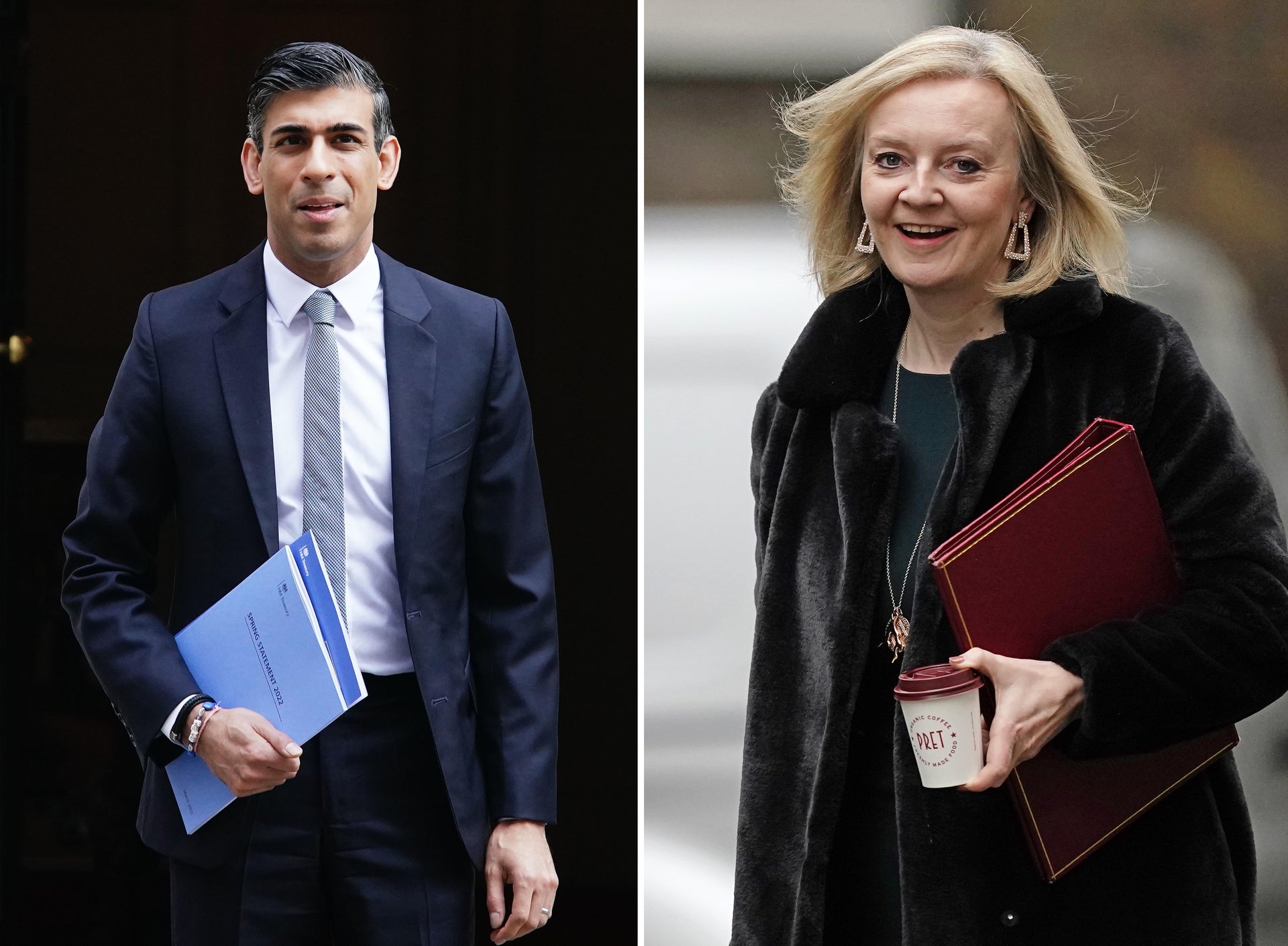The country has more to worry about than which Tory candidate Labour should fear
Keir Starmer is being urged to avoid underestimating Liz Truss, but that’s beside the point, writes John Rentoul


There are no accidental prime ministers, writes John McTernan, who was Tony Blair’s political secretary. “Truss has guile, will and talent,” he says, warning Keir Starmer to avoid joining the long line of men who have underestimated her.
He is right, up to a point. Liz Truss’s simple messages – cut taxes, down with “Treasury orthodoxy”, make Britain great again – could appeal to the broader electorate as well as to Conservative Party members.
On the other hand, the tactical question of whether Labour should prefer to be facing Truss or Rishi Sunak, or even Boris Johnson, seems beside the point. My view is that Keir Starmer would do best against Johnson, and worst against Sunak, other things being equal. But he doesn’t get to choose, and in any case the differences between the candidates pale into insignificance against the scale of the economic crisis that is unfolding.
Watching the hustings in Cardiff last night, it felt as if they were taking place in a parallel universe. Truss redefined Treasury orthodoxy as “discriminating against the self-employed”, which many of the self-employed people in the audience agreed with, although it has nothing to do with the tax advantages of self-employment, which remain substantial after the minor adjustments of recent years.
Sunak talked of his “enormous” ambition for Wales, which amounted to freeports, a bad anti-free-market idea reheated from the 1980s that will mean nothing to most people in most of Wales (it is anti-free-market because it involves the government using the tax system to distort economic activity).
Just as the Bank of England raises interest rates and predicts that inflation will peak at 13 per cent by the end of this year, and Ofgem predicts energy bills will keep rising, the political debate seems focused on trivia. Johnson and Starmer have gone on holiday, and “the Tory party leadership debate has looked like one long holiday from reality too”, as Paul Waugh of the i newspaper puts it.
The candidates put out statements today commenting on the Bank of England’s decision to raise the base rate, but again they seemed beside the point. Sunak correctly pointed out that cutting taxes would add fuel to the inflationary fire, but he said nothing about the additional help for people on low incomes that will be needed as energy bills keep going up. That may not be directly linked to the interest-rate decision, but it is what people are worried about.
Truss merely spoke vaguely about reviewing the Bank’s anti-inflation mandate, which is (a) a backward looking claim that the Bank acted too slowly, and (b) a bad idea, if it means that elected politicians should have more say over interest rates, as they did before 1997. And she too said nothing about the help that people will need with their bills.
Both candidates have proposed small schemes to cut bills. Sunak offers a temporary abolition of VAT on gas and electricity, and Truss wants a “moratorium” on the green levies, but whoever becomes prime minister will have to do more. And Truss’s “tax cuts” – reversing the national insurance rise – won’t help the people who will be hardest hit, because they mostly don’t have employers who pay it.
If she becomes prime minister, maybe McTernan will be right and she will prove more sure-footed than her opponents expect. On the evidence of this week’s U-turn on suppressing public-sector pay outside London and the South East – and, worse, her blaming other people for her mistake – I am not convinced.
To keep up to speed with all the latest opinions and comment, sign up to our free weekly Voices Dispatches newsletter by clicking here
But the bigger story is not which candidate Starmer would rather face. I have lost count of the number of Labour MPs who have said to me that Truss would be “bad for the country; good for Labour”. The Bank of England’s forecast makes it clearer than ever that the economic cycle is going to clash with the political one in the most awkward way possible for whoever is prime minister.
The latest date for a general election, now that the Fixed-term Parliaments Act has been repealed, is 28 January 2025 (five years after this parliament first met, plus 25 working days for the election campaign). Between now and then inflation may rise and fall, but pay won’t keep up and interest rates will probably continue to rise, as will unemployment. As Professor Robert Ford of Manchester University says, that means “the Conservatives will likely be campaigning in the worst economic context since the 2010 general election” – when the incumbent government lost.
Starmer may not have much better answers to the crisis than either of the Conservative candidates, but he is likely to benefit from not being in government over the next 29 months, whichever prime minister he faces.






Join our commenting forum
Join thought-provoking conversations, follow other Independent readers and see their replies
Comments